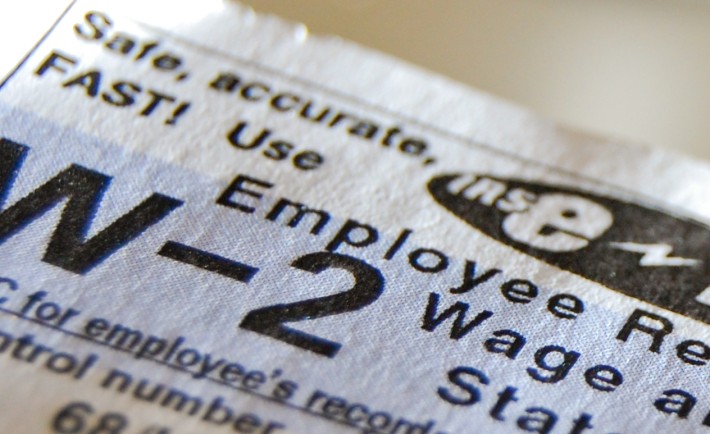
Dear W-2 employee,
It’s not you; it’s me. I’ve been hurt before by people like you and I’m just not ready to do it again. I’m sorry, but not really. I’ve moved on, and I’m keeping the business.
Best regards,
Ledge
We must buy commitment!
When I did my first full time startup in 2007 I was obsessed with company culture. To my mind, and aided by partners who shared this view, in order to foster loyalty and commitment we simply had to put all of our hires on payroll. We were absolutely convinced that what we were building was too damn important to work with, gasp, contractors.
Fast forward to the end of 2008 and we had eight really talented people on payroll. We were doing top line revenue of just over $40K/month. For the first time in the history of the company I was paying myself (less than the high school kid at the snack bar, but still). We were getting there, baby.
Anyone remember what happened then? It started with “Great” and ended (oh, did it end) with “Recession.” B2B training and development budgets, our life blood, all got cancelled the instant the clock changed to 12:00am on January 1, 2009. It was unreal. We went from $40K/month to $0. For six straight months.
What would you do?
I love this story. Not just because I took a six-figure haircut and burned my friends and family loans to the ground. More so, I love it because it taught me a hell of a lot about what it means to be an entrepreneur. It also makes me a damn good mentor for founders. You know that advice you are ignoring from that mentor with gray hair? Yeah, I was you.
So, ignore advice I did. I refused to believe that each successive month was not an ugly aberration. Certainly this can’t continue… for three years.
I ran out of money, laid off the entire staff, and closed the doors in June 2009, a month before my first son was born. In reality I was lucky. I got a consulting gig the following Monday and started making actual income that persisted through the recession. Many were not so lucky.
So what does this have to do with payroll?
Factors in the failure of this company were varied. We had significant marketing issues and were likely peddling a valuable solution to a problem no one wanted to try to solve when the chips were down. We would likely not have survived 2010 even if we got through 2009. However, we also had one significant operating flaw: too much payroll overhead.
I believe sincerely, and have accumulated proof, that our critical failure was to believe we could not create and deliver an exceptional experience with contract staff. We simply burned too much cash staffing our bench. What’s worse, when that fact was clear and I most definitely should have cut staff, I balked. I took care of people to the detriment of my company, my partners, and my family’s finances. I paid everyone else until the bitter end and left myself with a huge debt load. (I paid, and intend to keep paying, the company’s debt even though it was unsecured.)
Contractors can be blow your mind awesome.
I’m not saying it was really like this; I know everyone on staff was doing their best. But, it often felt like I was killing myself trying to sell enough work to pay everyone else. During the day everyone was in a desk waiting for a gig and during the evening and night I was alone at mine trying to eek out how the hell I was going to make it another week. I got to where I hated getting out of bed to go to work at my own company. That’s a sad place, the kind that makes CEO peer groups and therapists grateful.
Since that very expensive learning experience I have started somewhere around 10 additional companies. Every single one of them has been successful with an exclusively contract workforce. At first I did this begrudgingly. I just couldn’t afford payroll. I paid when the client paid. It didn’t take me long to realize what I had created by accident.
My contractors are bar none the most effective, efficient, and loyal people I’ve ever worked with. (I refuse to say they work for me, always with me.)
How was I so wrong about this? I think it was a fundamental misunderstanding about motivations, incentives, and the entrepreneurial spirit.
Let’s dive into the lesson.
- I need you hungry. If you want the “security” of payroll we’re not a good fit. I need you to thrive on projects for which I will pay you well and not give you shit about your rate. I need you to starve if we don’t collectively kick ass, and I need you to love it. For that I’ll always pay you and do so before I pay me.
- I need you to appreciate public feedback as compensation. I started hiring Odesk and Elance contractors shortly after the sites opened. I loved how I could get great talent for projects who worked for their 5 Stars because their top ratings got them more gigs. To me that’s a brilliant alignment of incentives.
- I need you to own it. I’m a huge proponent of project-based interviewing. You get a gig. If you jive with me and you kick ass, you get another gig. It’s elegant and, again, incentives are aligned.
- I need you to take my call first. This is why I don’t haggle on rates. I ask a contractor what he or she wants to make and I don’t argue with the answer. If it fits the project, I pay it. If not, I’ll tell the truth, allow for a lower bid at their option, or file their info for the next gig that’s a fit. In exchange, I want to be first. Every time. I don’t care about your other clients. I pay the best, I manage the best, and I bring the best gigs. If you want that then we’re a good fit. I care more about fielding the best team and winning than I do about anything else. My clients demand it and I’m your client, so I demand it.
This works for me.
I have a sick team that has joined me, project to project, in some cases for 12 years or more. None of them has ever asked me for a salary or benefits. None of them is hurting for money. We absolutely kick ass together and we bring the goods. More importantly, we work like an all-star team together. We support each other. We have a damn good culture even though we don’t share a shred of durable binding.
It’s awesome, and it’s why I’m done with payroll.






